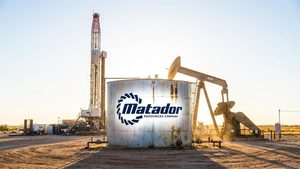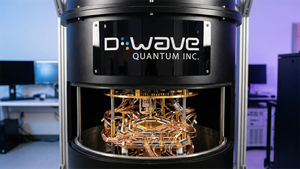
In an escalating confrontation that underscores the profound philosophical divide shaping the future of artificial intelligence, the White House and leading AI developer Anthropic are clashing over the fundamental tenets of AI regulation. As of October 2025, this high-stakes dispute centers on critical issues ranging from federal versus state oversight to the ethical boundaries of AI deployment in law enforcement, setting the stage for a fragmented and contentious regulatory landscape. The immediate significance of this disagreement lies in its potential to either accelerate unchecked AI innovation or establish robust safeguards, with far-reaching implications for industry, governance, and society.
The core of the conflict pits the current White House's staunchly deregulatory, pro-innovation stance against Anthropic's (private) insistent advocacy for robust, safety-centric AI governance. While the administration champions an environment designed to foster rapid development and secure global AI dominance, Anthropic argues for proactive measures to mitigate potential societal and even "existential risks" posed by advanced AI systems. This ideological chasm is manifesting in concrete policy battles, particularly concerning the authority of states to enact their own AI laws and the ethical limitations on how AI can be utilized by governmental bodies, especially in sensitive areas like policing and surveillance.
The Policy Battleground: Deregulation vs. Ethical Guardrails
The Trump administration's "America's AI Action Plan," unveiled in July 2025, serves as the cornerstone of its deregulatory agenda. This plan explicitly aims to dismantle what it deems "burdensome" regulations, including the repeal of the previous administration's Executive Order 14110, which had focused on AI safety and ethics. The White House's strategy prioritizes accelerating AI development and deployment, emphasizing "truth-seeking" and "ideological neutrality" in AI, while notably moving to eliminate "diversity, equity, and inclusion" (DEI) requirements from federal AI policies. This approach, according to administration officials, is crucial for securing the United States' competitive edge in the global AI race.
In stark contrast, Anthropic, a prominent developer of frontier AI models, has positioned itself as a vocal proponent of responsible AI regulation. The company's "Constitutional AI" framework is built on democratic values and human rights, guiding its internal development and external policy advocacy. Anthropic actively champions robust safety testing, security coordination, and transparent risk management for powerful AI systems, even if it means self-imposing restrictions on its technology. This commitment led Anthropic to publicly support state-level initiatives, such as California's Transparency in Frontier Artificial Intelligence Act (SB53), signed into law in September 2025, which mandates transparency requirements and whistleblower protections for AI developers.
The differing philosophies are evident in their respective approaches to governance. The White House has sought to impose a 10-year moratorium on state AI regulations, arguing that a "patchwork of state regulations" would "sow chaos and slow innovation." It even explored withholding federal funding from states that implement what it considers "burdensome" AI laws. Anthropic, while acknowledging the benefits of a consistent national standard, has fiercely opposed attempts to block state-level initiatives, viewing them as necessary when federal progress on AI safety is perceived as slow. This stance has drawn sharp criticism from the White House, with accusations of "fear-mongering" and pursuing a "regulatory capture strategy" leveled against the company.
Competitive Implications and Market Dynamics
Anthropic's proactive and often contrarian stance on AI regulation has significant competitive implications. By publicly committing to stringent ethical guidelines and banning its AI models for U.S. law enforcement and surveillance, Anthropic is carving out a unique market position. This could attract customers and talent prioritizing ethical AI development and deployment, potentially fostering a segment of the market focused on "responsible AI." However, it also places the company in direct opposition to a federal administration that increasingly views AI as a strategic asset for national security and policing, potentially limiting its access to government contracts and collaborations.
This clash creates a bifurcated landscape for other AI companies and tech giants. Companies like Alphabet (NASDAQ: GOOGL), Microsoft (NASDAQ: MSFT), and Amazon (NASDAQ: AMZN), which are also heavily invested in AI, must navigate this tension. They face the strategic choice of aligning with the White House's deregulatory push to accelerate innovation or adopting more cautious, Anthropic-like ethical frameworks to mitigate risks and appeal to a different segment of the market. The regulatory uncertainty, with potential for conflicting state and federal mandates, could disrupt product roadmaps and market entry strategies, especially for startups lacking the resources to comply with a complex and evolving regulatory environment.
For major AI labs, the debate over usage limits, particularly for law enforcement, could redefine product offerings. If Anthropic's ban sets a precedent, other developers might face pressure to implement similar restrictions, impacting the growth of AI applications in public safety and national security sectors. Conversely, companies willing to develop AI for these purposes under looser regulations might find a niche, though potentially facing greater public scrutiny. Ultimately, the market stands to be shaped by which philosophy gains traction—unfettered innovation or regulated, ethical deployment—determining who benefits and who faces new challenges.
Wider Significance: A Defining Moment for AI Governance
The conflict between the White House and Anthropic transcends a mere policy disagreement; it represents a defining moment in the global discourse on AI governance. This tension between accelerating technological progress and establishing robust ethical and safety guardrails is a microcosm of a worldwide debate. It highlights the inherent challenges in regulating a rapidly evolving technology that promises immense benefits but also poses unprecedented risks, from algorithmic bias and misinformation to potential autonomous decision-making in critical sectors.
The White House's push for deregulation and its attempts to preempt state-level initiatives could lead to a "race to the bottom" in terms of AI safety standards, potentially encouraging less scrupulous development practices in pursuit of speed. Conversely, Anthropic's advocacy for strong, proactive regulation, even through self-imposed restrictions, could set a higher bar for ethical development, influencing international norms and encouraging a more cautious approach to powerful "frontier AI" systems. The clash over "ideological bias" and the removal of DEI requirements from federal AI policies also raises profound concerns about the potential for AI to perpetuate or amplify existing societal inequalities, challenging the very notion of neutral AI.
This current standoff echoes historical debates over the regulation of transformative technologies, from nuclear energy to biotechnology. Like those past milestones, the decisions made today regarding AI governance will have long-lasting impacts on human rights, economic competitiveness, and global stability. The stakes are particularly high given AI's pervasive nature and its potential to reshape every aspect of human endeavor. The ability of governments and industry to forge a path that balances innovation with safety will determine whether AI becomes a force for widespread good or a source of unforeseen societal challenges.
Future Developments: Navigating an Uncharted Regulatory Terrain
In the near term, the clash between the White House and Anthropic is expected to intensify, manifesting in continued legislative battles at both federal and state levels. We can anticipate further attempts by the administration to curb state AI regulatory efforts and potentially more companies making public pronouncements on their ethical AI policies. The coming months will likely see increased scrutiny on the deployment of AI models in sensitive areas, particularly law enforcement and national security, as the implications of Anthropic's ban become clearer.
Looking further ahead, the long-term trajectory of AI regulation remains uncertain. This domestic struggle could either pave the way for a more coherent, albeit potentially controversial, national AI strategy or contribute to a fragmented global landscape where different nations adopt wildly divergent approaches. The evolution of "Constitutional AI" and similar ethical frameworks will be crucial, potentially inspiring a new generation of AI development that intrinsically prioritizes human values and safety. However, challenges abound, including the difficulty of achieving international consensus on AI governance, the rapid pace of technological advancement outstripping regulatory capabilities, and the complex task of balancing innovation with risk mitigation.
Experts predict that this tension will be a defining characteristic of AI development for the foreseeable future. The outcomes will shape not only the technological capabilities of AI but also its ethical boundaries, societal integration, and ultimately, its impact on human civilization. The ongoing debate over state versus federal control, and the appropriate limits on AI usage by powerful institutions, will continue to be central to this evolving narrative.
Wrap-Up: A Crossroads for AI Governance
The ongoing clash between the White House and Anthropic represents a critical juncture for AI governance. On one side, a powerful government advocates for a deregulatory, innovation-first approach aimed at securing global technological leadership. On the other, a leading AI developer champions robust ethical safeguards, self-imposed restrictions, and the necessity of state-level intervention when federal action lags. This fundamental disagreement, particularly concerning the autonomy of states to regulate and the ethical limits of AI in law enforcement, is setting the stage for a period of profound regulatory uncertainty and intense public debate.
This development's significance in AI history cannot be overstated. It forces a reckoning with the core values we wish to embed in our most powerful technologies. The White House's aggressive pursuit of unchecked innovation, contrasted with Anthropic's cautious, ethics-driven development, will likely shape the global narrative around AI's promise and peril. The long-term impact will determine whether AI development prioritizes speed and economic advantage above all else, or if it evolves within a framework of responsible innovation that prioritizes safety, ethics, and human rights.
In the coming weeks and months, all eyes will be on legislative developments at both federal and state levels, further policy announcements from major AI companies, and the ongoing public discourse surrounding AI ethics. The outcome of this clash will not only define the competitive landscape for AI companies but also profoundly influence the societal integration and ethical trajectory of artificial intelligence for decades to come.
This content is intended for informational purposes only and represents analysis of current AI developments.
TokenRing AI delivers enterprise-grade solutions for multi-agent AI workflow orchestration, AI-powered development tools, and seamless remote collaboration platforms.
For more information, visit https://www.tokenring.ai/.





